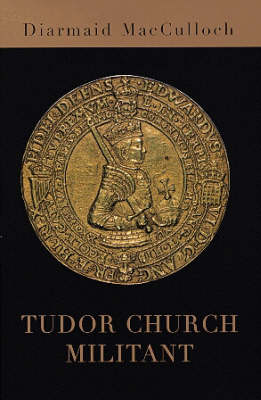Allen Lane History S.
1 total work
The boy-king Edward VI, last of the male Tudors, died while still a teenager, his plans for his country's future soon to be overturned by his Roman Catholic half-sister Mary. Yet his reign has a significance in English history out of all proportion to its brief six-year span. During its course, England's rulers spearheaded a religious revolution which propelled them into the heart of the European Protestant Reformation. They deliberately sponsored the destruction of a thousand-year-old devotional world, and they let loose an explosive new form of Christianity within the realm. This moulded the future identity of the English nation, created a shape for the Church of England which remains today, and inspired one of the foundation documents of English prose, the Book of Common Prayer, a key text in the development of one of the world's most widely spoken languages. In this book, based on the Birkbeck Lectures at Cambridge University for 1997-98, Diarmaid MacCullogh underlines the significance of Edward's turbulent and neglected reign. He take a fresh look at the life and beliefs of the young king and of the ruthless politicians who jostled for power around him.
He analyzes the carefully phased but single-minded strategy for bringing in the Protestant revolution; he assesses the support which the revolution enjoyed among the people of England; and he emphasizes the heady enthusiasm that many felt for what was happening. He describes the crisis of 1549, when nationwide unrest divided the government and people and brought about the overthrow of the King's charismatic uncle and Lord Protector, the Duke of Somerset. Although the regime collapsed in apparent failure and disgrace on Edward's death in 1553, the story does not end there; a second half-sister, Elizabeth, succeeded Mary and brought Protestantism back to the official Church, though in a subtly different form. The tensions between her vision of the Church and that of the dead boy-king continued to haunt English religion. MacCulloch traces the strange afterlife of Edward's reign, its surprising connections with the civil wars which convulsed the British Isles a century later, and the effect it still has on English life.
He analyzes the carefully phased but single-minded strategy for bringing in the Protestant revolution; he assesses the support which the revolution enjoyed among the people of England; and he emphasizes the heady enthusiasm that many felt for what was happening. He describes the crisis of 1549, when nationwide unrest divided the government and people and brought about the overthrow of the King's charismatic uncle and Lord Protector, the Duke of Somerset. Although the regime collapsed in apparent failure and disgrace on Edward's death in 1553, the story does not end there; a second half-sister, Elizabeth, succeeded Mary and brought Protestantism back to the official Church, though in a subtly different form. The tensions between her vision of the Church and that of the dead boy-king continued to haunt English religion. MacCulloch traces the strange afterlife of Edward's reign, its surprising connections with the civil wars which convulsed the British Isles a century later, and the effect it still has on English life.
